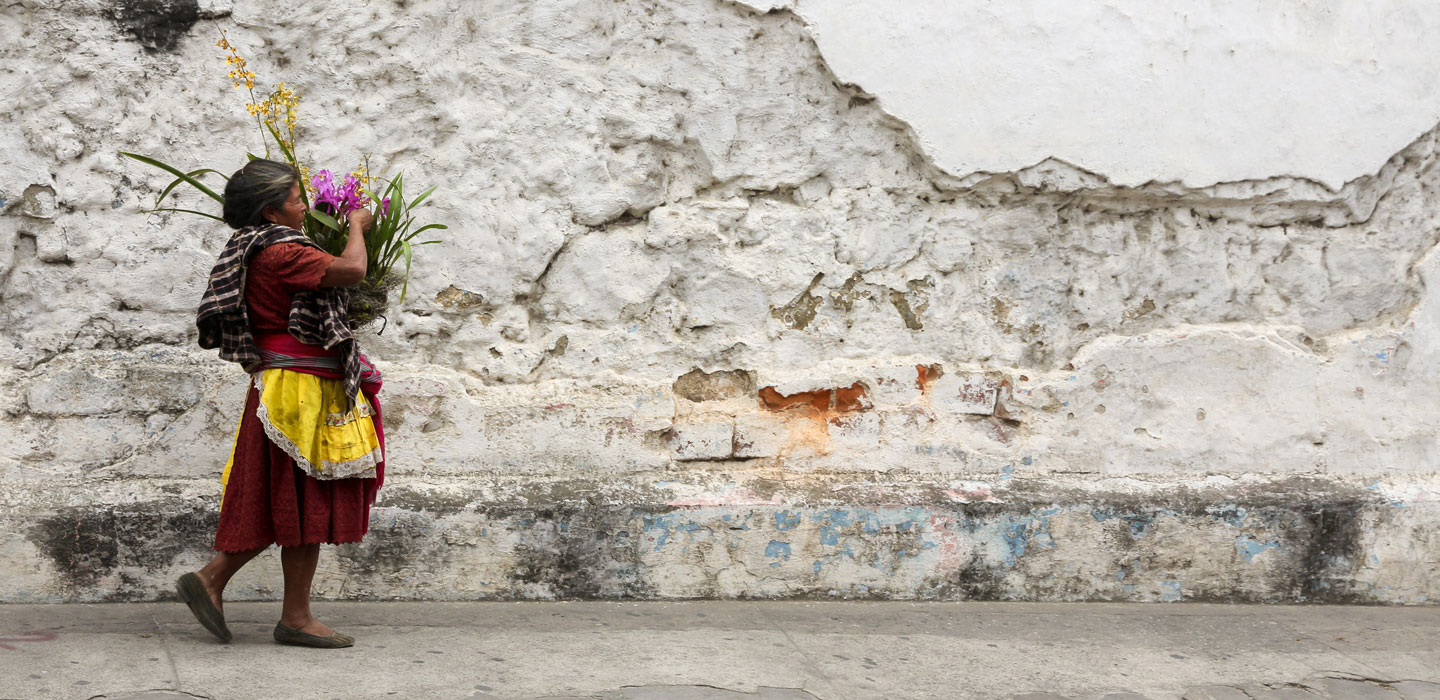Building up family farmers’ resilience through nature-based solutions in Latin America and the Caribbean
IFAD Asset Request Portlet
Asset Publisher
Building up family farmers’ resilience through nature-based solutions in Latin America and the Caribbean
Estimated reading time: 4 minutes
Photo by Scott Umstattd on Unsplash
As the coronavirus pandemic continues to rattle people’s lives all across the world, it is perhaps not surprising that resilience has become the talk of the town in the development community.
When life strikes hard, you realize that to be resilient – to be capable of adapting and coping when faced with a shock – you need to focus on the basics. And what could be more basic than turning to the natural environment, the ecosystems? Indeed, we may find real solutions in the idea of “back to the basics,” especially when it comes to farming.
The more closely we align agriculture with ecosystems and natural infrastructure, the more farmers will be prepared to resist both immediate shocks like the COVID-19 outbreak and more subtle but (in the long term) equally dramatic shocks such as climate change.
Understanding the ecosystem in which we live allows us to make the most of what nature offers, reducing to a minimum the number of external inputs we need to carry on. It also means that we adequately value natural assets that are essential not only to economic undertakings, but also to the continuity of human life as we know it.
The impacts of COVID-19 have also made us understand, in the hardest possible way, that in times of crisis, resilience at the local level is essential for survival. The ability to rely on local natural resources for food production, water availability and energy generation becomes essential when supply chains become fragmented or broken.
It was clear before, and now it is clearer than ever: rural development solutions in the post-COVID era have to be nature-friendly. That’s why we are determined to invest more in nature-based solutions (NBS).
NBS are actions that protect, sustainably manage and restore natural or modified ecosystems. According to the IPCC, some of the NBS with the greatest potential impacts for adaptation and resilience-building include agroforestry, improved cropland management, agricultural diversification, integrated water management, and forest management – all areas in which IFAD invests from its core resources.
NBS are also defined by site-specific natural and cultural contexts. They take into consideration both traditional and local knowledge as well as scientific knowledge. They not only seek to protect nature, but also aspire to produce societal benefits in a fair way, building a sustainable and equitable future rather than just seeking immediate economic returns.
IFAD has been applying this approach for quite some time. This is especially true of our projects in Latin America and the Caribbean (LAC), where, given the abundance of natural capital in the region, we’ve always sought to maximize the benefits of investing in green infrastructure.
Bolivia’s ACCESOS is a resilient value chain project, supported with ASAP funds, that was finalized last year with a great deal of success. The project emphasized bottom-up participatory planning, through which the beneficiaries – the rural people themselves – were able to identify ecosystem-based solutions that incorporated their indigenous and traditional knowledge.
Under this system, one community embarked on a beekeeping business that incorporated native tree species, thus sparking a reforestation process. Another community in the same watershed is now restoring the riverbanks with native trees and bushes to prevent erosion. This combination of upstream and downstream investments makes the entire watershed much more resilient in the face of frequent flooding.
In Peru, the MERESE project, supported by the Global Environment Facility, is developing a Payment for Ecosystem Services mechanism in two major watersheds. This mechanism provides financing to upstream communities who, through sustainable land management practices, are able to improve their productive activities while conserving relic forests and wetlands, which are essential to maintaining the water flow for downstream water users, such as commercial farms and industrial operations. The system provides the triple benefit of improved livelihoods, restored ecosystems, and stable provision of good quality water.
Meanwhile, Planting Climate Resilience, a project currently in its final design phase, will focus entirely on green investment to cope with increasing drought in the Brazilian Semi-arid. Rather than seeking to increase water availability through pumps, dams and cisterns, the project will apply the capacity of the native flora and fauna to access and store water, resulting in a biota capable of supplying water for productive activities.
To achieve this, the project will promote a shift in productive practices, empowering local women and youth to strengthen the resilience and food security of communities whose entire livelihoods are threatened by drought. The project also incorporates an innovative financing structure, combining support from IFAD, the Green Climate Fund, and the Brazil National Development Bank.
We have said that IFAD’s post-COVID operations in LAC should follow, from now on, what we call the “3Rs” approach: recovery – reactivation – resilience.
The last of the “3Rs” is, no doubt, the most important, as it speaks directly to the core of IFAD’s mandate: providing family farmers the means they need to thrive. And when we ensure that family farmers can thrive, everybody else can thrive too: these farmers are the only ones who, by bringing quality food to our tables, can make sure that a health crisis like the COVID-19 pandemic doesn’t also become a food disaster.
Their resilience is our resilience – and IFAD is going to use all tools at hand to contribute to building it up. Nature-based solutions are, no doubt, one of them.
- Read more about IFAD's work in Latin America and the Caribbean.
- Learn more about IFAD’s response to COVID-19
